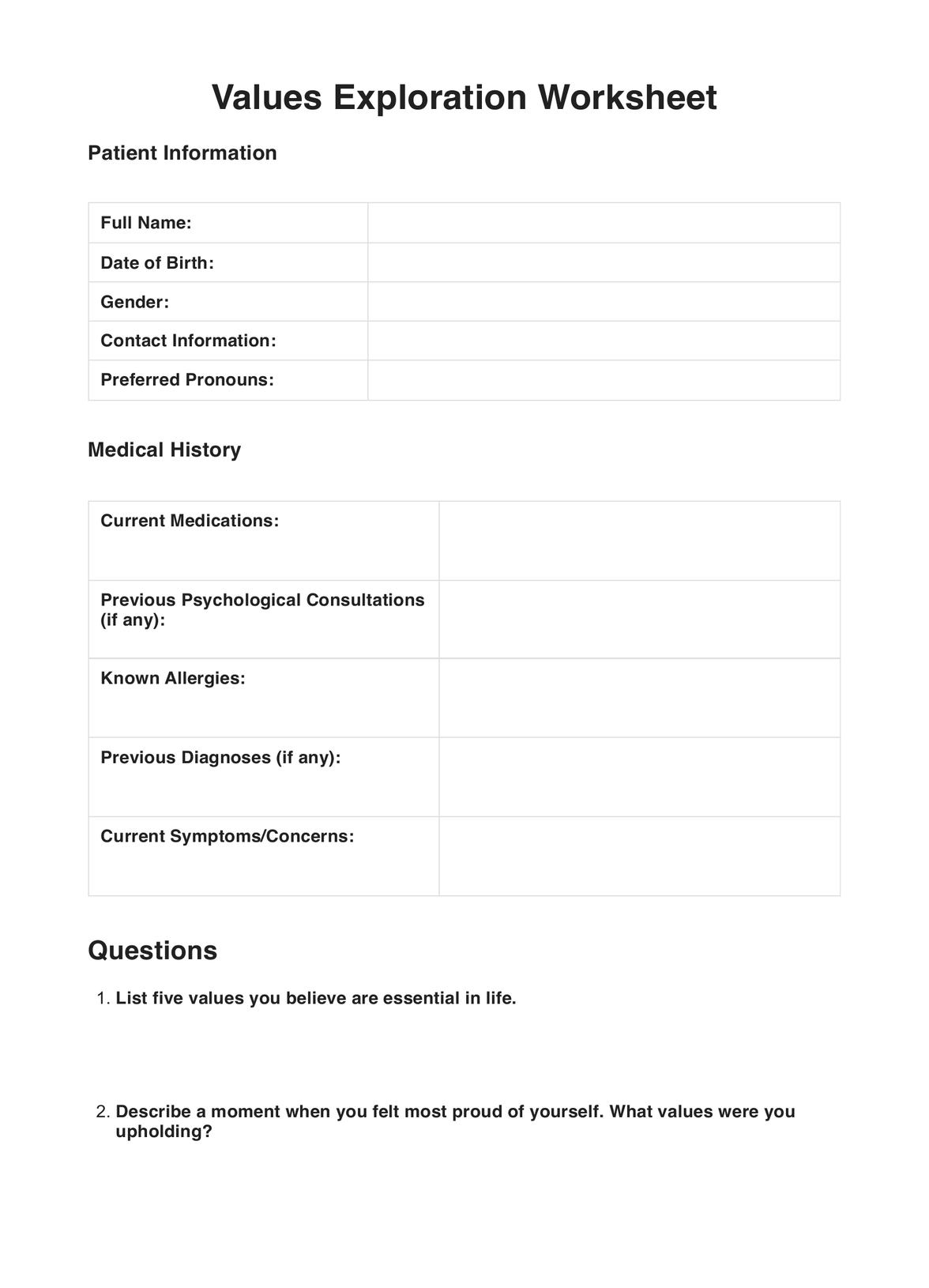Yes, you can customize the worksheet templates on Carepatron to suit your specific needs and preferences. Carepatron offers flexible templates tailored to therapeutic approaches, client requirements, and personal development goals. This customization feature allows you to create more relevant and practical worksheets for your clients or personal use.

Values Exploration Worksheets
Discover the ultimate guide to practical co-parenting with Carepatron's worksheet. Dive into comprehensive tools backed by research for harmonious parenting.
Values Exploration Worksheets Template
Commonly asked questions
Your data on the Carepatron platform is highly secure. Carepatron adheres to strict data protection and privacy standards, including compliance with HIPAA (Health Insurance Portability and Accountability Act) regulations. The platform uses advanced encryption and security protocols to ensure that all personal and sensitive information is securely stored and protected from unauthorized access.
Yes, Carepatron is suitable for professionals working with co-parents, including therapists, counselors, and other mental health practitioners. The platform offers tools and features that facilitate effective communication, coordination, and documentation, which is essential in co-parenting scenarios. Carepatron's resources, such as customizable worksheets and secure messaging, can support professionals in providing guidance and support to co-parents navigating the challenges of shared parenting.
EHR and practice management software
Get started for free
*No credit card required
Free
$0/usd
Unlimited clients
Telehealth
1GB of storage
Client portal text
Automated billing and online payments











